




Issue 88 Spring 2024 childreninwales.org.uk Centering Children’s Rights in a Time of Change FEATURES Cafcass Cymru Clybiau Plant Cymru Kids Clubs Children’s Commissioner for Wales We Stand Children in Wales’ Annual Poverty Survey NYAS Cymru PLUS:
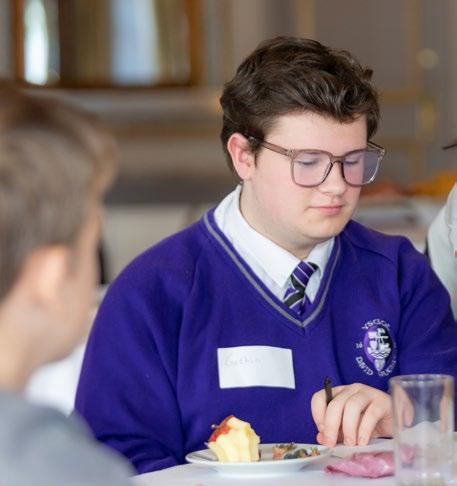
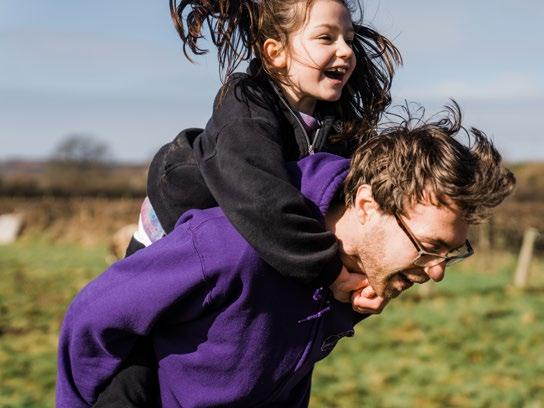
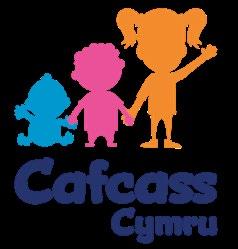


Welcome! 2 | childreninwales.org.uk Welcome from Hugh Russell, CEO Breaking Down Walls: The Right to a Return Interview (NYAS) Prioritizing the rights of babies, children and young people in Wales (Children in Wales) ‘Pause, Play, Fast-Forward: The Journey of Children in Wales’: The Children’s Rights Book Written by Young People, For Young People The Annual Child & Family Poverty Surveys are now live Children’s rights in private family law proceedings and the Pathfinder pilot (Cafcass Cymru) A focus on Out of School Childcare and Play (Clybiau Plant Cymru Kids’ Clubs) Six things young people would do if they were in charge (Children’s Commissioner for Wales) Young Wales is recruiting young volunteers! WeStand 4 6 8 13 14 16 18 20 22 24 20 16

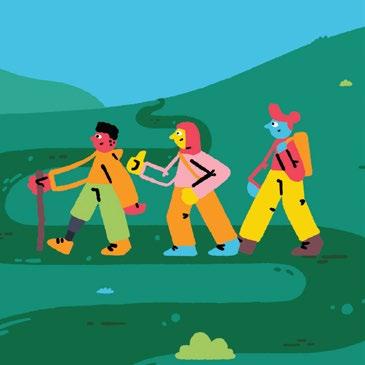
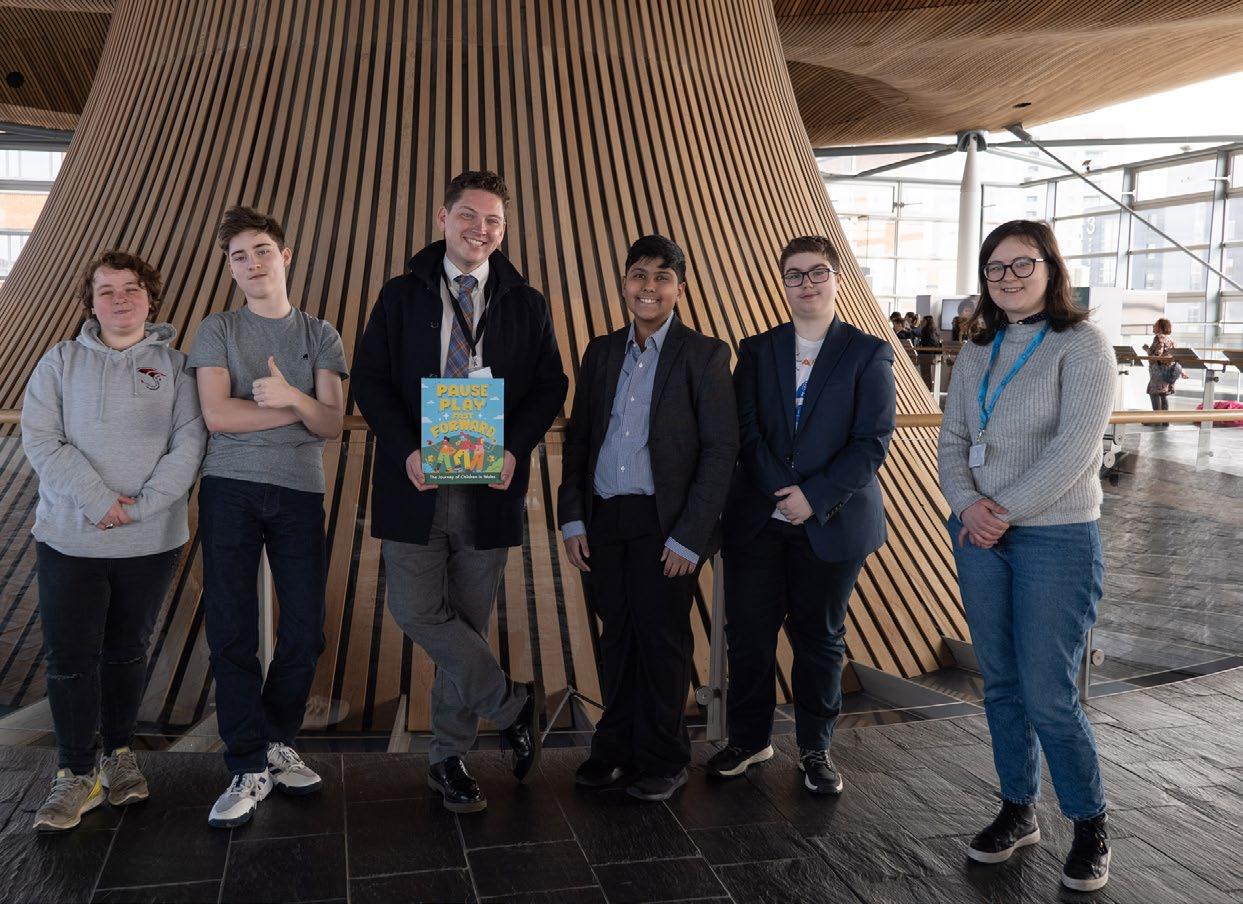
Editor: Louise O’Neill louise.oneill@childreninwales.org.uk
Cardiff University Social Science Research Park (SPARK), Cardiff, CF24 4HQ
029 2034 2434 @ChildreninWales info@childreninwales.org.uk
Registered Charity No: 1020313
Company Reg No: 2805996
The views expressed in this publication are not necessarily those of Children In Wales and we reserve the right to edit for publication.
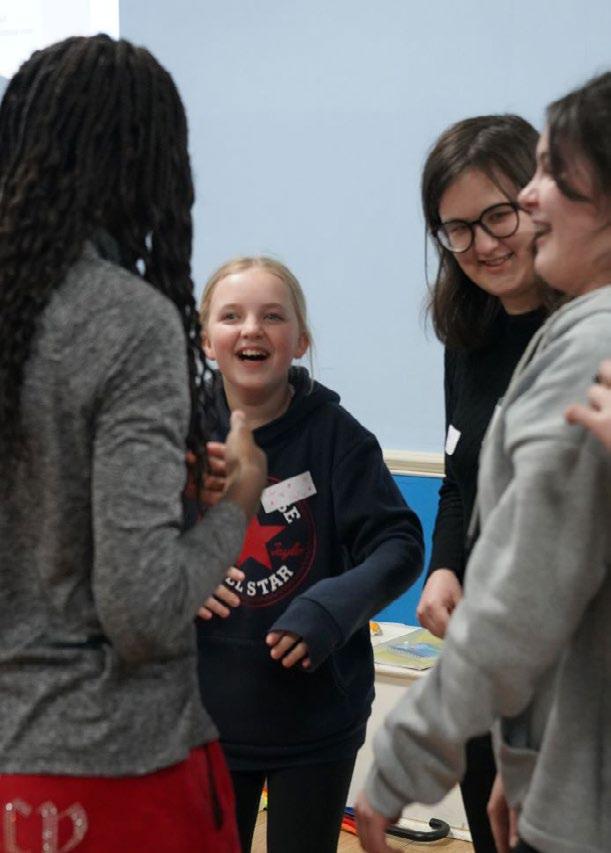


Spring 2024 | 3 4 13 22
Welcome from Hugh Russell, CEO
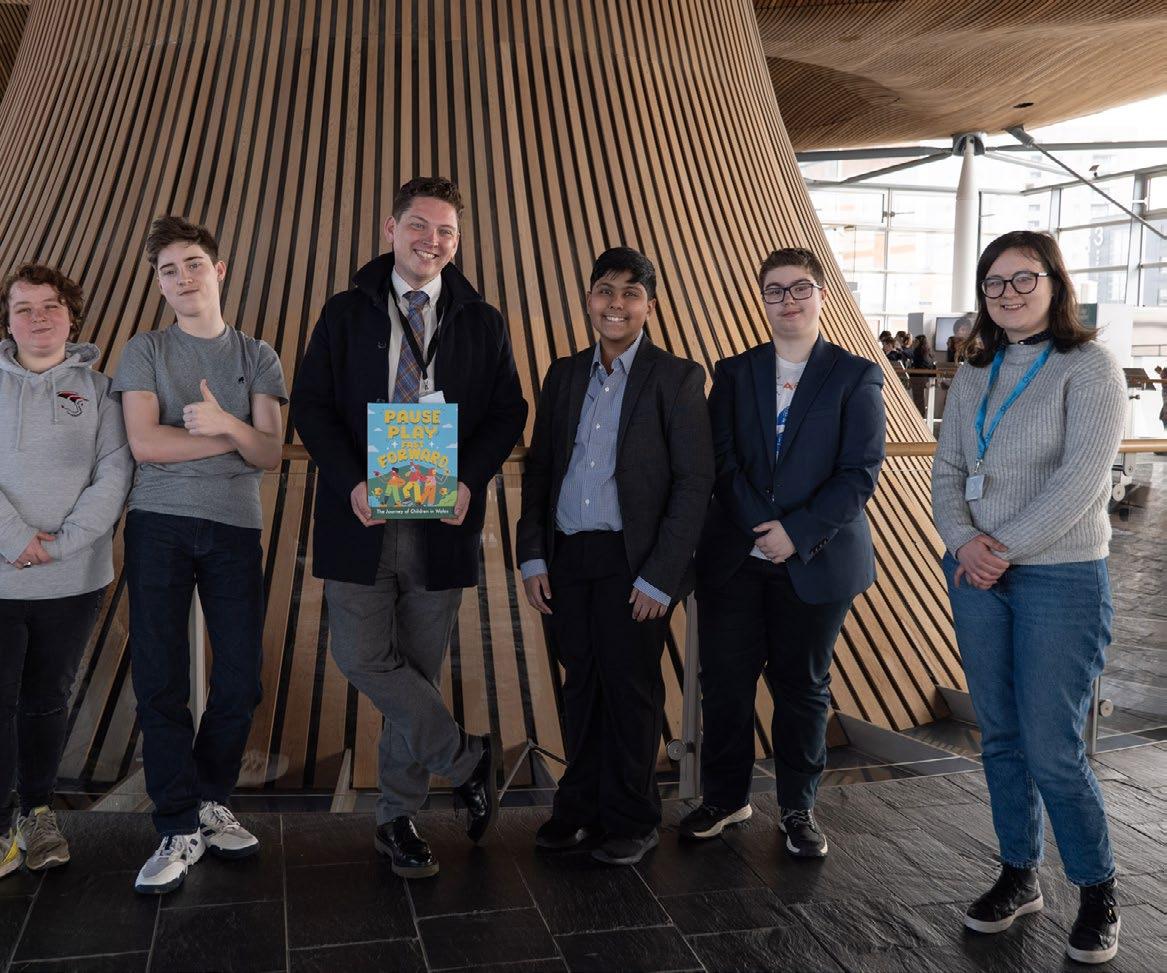

4 | childreninwales.org.uk
Croeso
pawb; Welcome all, to
this Spring Edition of Children in Wales’ Quarterly Magazine.
Spring is a season of change, and it was with this in mind that we set the theme for this edition of the magazine. Politically, we are going to see changes this year on a scale not felt in years. We welcome a new First Minister of Wales, Vaughan Gething, and an associated new cabinet (though many of the figures therein will be familiar to CiW members from previous roles). We are set too for a general election, which the polls have consistently shown will usher in a Labour government.
It is worth noting at this point that we were expecting elections to take place across Wales for representatives to the UK Youth Parliament this year. The unfortunate, recent demise of British Youth Council, who provided central coordination for the UKYP, has meant that these elections have had to be paused. I’m conscious that this means uncertainty and frustration for young people, but wish to assure readers that we have been working with the DCMS and other partners to get the programme back up and running as quickly as possible to provide Welsh young people with that opportunity to have their voices heard.
Throughout this period of political change, Children in Wales aims to ensure that children’s rights are respected in political decision making and the voices of our members are heard by policymakers. It was heartening to hear the First Minister set high on his priority list the urgent need to address child poverty and to focus heavily on the critical first 1,000 days of children’s lives, and we look forward to working with him and with the relevant cabinet secretaries and ministers he has appointed to ensure that our members’ collective knowledge and experience feeds into this work.
It is appropriate then that this edition features articles from members setting out the challenges that they, and the children and young people they work with, are facing, so that we can help to highlight them to those with new powers.
Reading through the submissions this quarter, I found the Children’s Commissioner’s piece particularly striking, collating the experiences of hundreds of young people and setting out their demands for change: improvements to schools, greater availability of public transport, and improved access to medical care were among the calls from young people.
From Children in Wales’ perspective, this edition has given us the opportunity to set out a number of our priorities across diverse areas of our operation and you will be able to read about what we believe needs to change in the areas of additional learning needs, child poverty (a depressing and recurrent theme), early years, and family and parenting support, amongst others.
Elsewhere, we have pieces from voluntary sector partners which describe new services (We Stand, who outline their programme to support families affected by child sexual abuse), or highlight existing ones (the out of school playwork clubs supported by Clybiau Plant Cymru Kids’ Clubs). NYAS Cymru have contributed an article on their important campaign to see return interviews made a statutory right. CAFCASS Cymru, an arm of Welsh Government, have also contributed an update on their pathfinder work to ensure that children’s right to be heard in private family law proceedings.
As ever, I would like to thank those who have submitted articles to this edition of the magazine and wish all of our readers and wider membership a bright and positive season ahead.
Spring 2024 | 5
Breaking Down Walls: The Right to a Return Interview
Phoebe White, NYAS Cymru

When return interviews were discussed in the Senedd earlier in March, the former First Minister Mark Drakeford MS, shared a reflection that strongly resonated with us at NYAS Cymru: “Why would you not want to sit down and ask that young person about what lay behind the actions that had taken place in their lives?”
Care-experienced children are at a disproportionately higher risk of missing incidents than their peers. Data collected by NYAS Cymru
and The Children’s Society found that in 2020, 39% of the total missing child incidents in Welsh local authorities involved a child living in care, despite care-experienced children only making up 1% of the total child population in Wales. Missing incidents amongst care-experienced children are often an indication that something is wrong in their lives. It could be a sign that a child is being harmed or exploited, that a relationship has broken down, they might not feel safe or secure where they’re living, or they might be
6 | childreninwales.org.uk
missing their friends or family and want to see them. Whatever this reason is, who would want to miss an opportunity to ask children about their feelings and what led to this incident, so that everything could be done to prevent it happening again?
Return interviews are one of the most powerful safeguarding tools when working with children missing from care. A return interview can help understand what led to a child being missing, what happened whilst they were missing and what can be done to prevent it happening again. For children, return interviews are equally as important. They provide a safe space for children to talk with a trusted adult and have their voice heard, a key part of upholding their Article 12 right under the UNCRC.
In 2014, the UK Government made the offer of a return interviews statutory practice for care-experienced children in England, meaning they have an entitlement to be offered a return interview within 72 hours of returning to care. Since this statutory introduction, data from NYAS’ return interview services in England has shown that when a return interview is completed with a care-experienced child, the average number of repeat missing incidents reduced from 6.3 to 2.8. In comparison to Wales, where return interviews are not statutory, the average number of repeat missing incidents for care-experienced children is 3.2.
As the right to a return interview was given to careexperienced children in England, NYAS Cymru’s sights quickly turned to giving care-experienced children this same entitlement in Wales. This was the beginning of the All Wales ‘Missing the Point’ National Steering Group, a group convened by NYAS Cymru and made up of professionals from across Wales, all working to share best practice and reduce the number of missing children in Wales. The group sits alongside our ‘Missing the Point’ Campaign, aimed at ending the cycle that disproportionately places care-experienced children at a higher risk of missing and exploitation. As part of the campaign, NYAS Cymru have long called on the Welsh Government to make the offer of an independent return interview a statutory right for care-experienced children.
Five years into our campaigning work, we believe we are as close as ever to seeing return interviews become a statutory right for care-experienced children in Wales. NYAS Cymru’s calls are being supported by Senedd Members, being used as recommendations to Welsh Government in Committee reports and return interviews are taking centre stage in First Minister’s Questions.
Our vision is for all care-experienced children across Wales to feel safe and happy in their environment, safeguarded from risk and given an opportunity to express their views when something has happened which results in them being reported as missing. With the number of children entering care in Wales continuing to rise, the number of children missing from care will also continue to rise. Care-experienced children are relying on the next First Minister to advance their rights further by making return interviews a statutory right in Wales and truly ending the cycle that disproportionately places them at a higher risk of missing and exploitation.
To find out more about NYAS Cymru return interview services, please refer to our website or contact johanne.jones@nyas.net
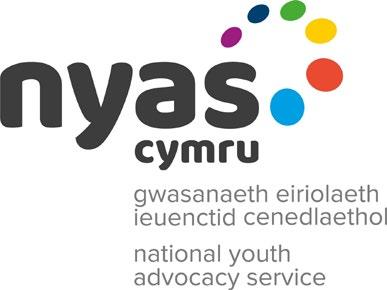
Spring 2024 | 7
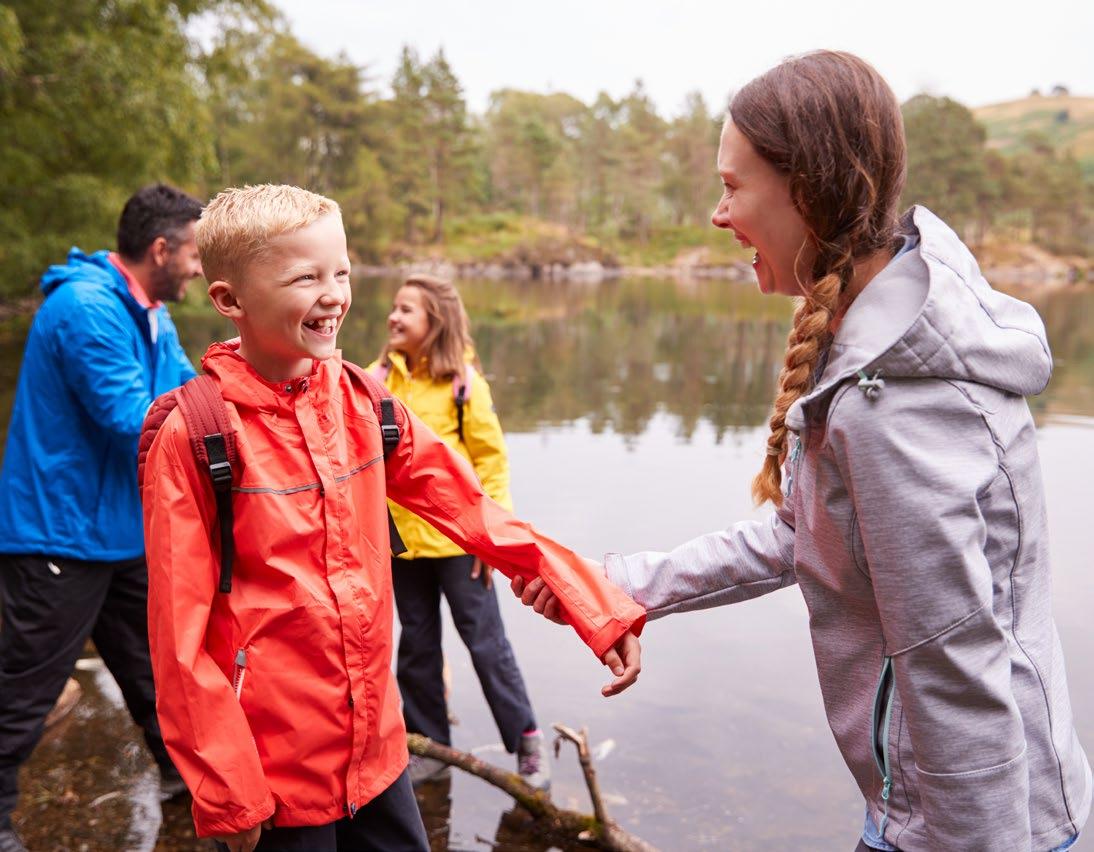


Prioritizing the rights of babies, children and young people in Wales
Sean O’Neill, Anna Westall, Karen McFarlane, Fatiha Ali & Russell Baker, Children in Wales
With the changing of the season and the longer daylight hours, this naturally brings renewed hope and expectation, and a greater sense of purpose and abundant possibilities.
The same could be said for an election of a new First Minister, complete with a refreshed team of ministers and cabinet secretaries, all eager to make their mark and all our lives somewhat better. So, with a new captain at the helm, what can we expect during the latter stages of the current Senedd term?
The new First Minister’s election manifesto set out a vision where all children and young people have all their rights fulfilled across all policy areas and included several key pledges to fulfil this aim. Chief amongst these is a renewed focus on the first 1,000 days of a child’s life and a commitment to expand the Childcare Offer as resources become available. There are commitments to prioritise investment in mental health services, to tackle all forms of prejudice and discrimination in the classroom, strengthen pre-16 schoolemployer engagement and to grow the economy, ensuring that work is meaningful and lifts people out of poverty. There is also an interesting proposal to introduce a cultural passport for under 18s, to help ensure that young people from every background can access arts, culture, and creative opportunities.
Changes to the top team in the Welsh Government comes at a critical time for babies, children, young people and families in Wales, many of whom are experiencing unrelenting cost of living stresses and the legacy of the global pandemic, all taking place within the context of unprecedented pressures on the devolved Welsh Budget. The need therefore to prioritise and invest in children, particularly those most vulnerable and disadvantaged due to their characteristics or circumstances, is arguably more crucial now than at any point since devolution began.
Through our programme of work with children, young people, parents and professionals, Children in Wales continues to emphasise the need to protect and grow services and
interventions which deliver positive outcomes for babies, children, young people, and their families, ensuring that early intervention and prevention programmes are prioritised and fully resourced, alongside those which provide crisis support. Capturing the key priorities from our broad range of constituents is key in helping to shape our calls on decision makers and those in positions of power. So, what are some of our expectations of this new Welsh Government?
Priorities for Children and Young People by Children and Young People
For children and young people, our Young Wales programme organised a residential at Abernant in February, in which we held a number of sessions exploring and collecting their views on the priority areas for the Welsh Government, informed by the Concluding Observations of the United Nations published in May 2023. The young people were briefed on the history and background which led to the UN report, including a reminder of the six priority areas highlighted in the Young Wales Report to the UN, as well as the recommendations from the State of Children’s Rights in Wales report produced on behalf of civil society organisations. The young people were also given the opportunity to highlight other areas that they felt should be priorities, drawing on evidence from other sessions, discussions, and conversations they had. The priority areas for Welsh government were outlined as:
• Mental Health (and Wellbeing)
• Living Standards / Cost of Living
• Equity, Diversity, and Inclusion (Non-Discrimination)
• Sustainability
Spring 2024 | 9
Priorities for Children and Young People by Professionals
From our professional networks, we have selected four key priorities, all of which should be considered as part of our overarching aim of further progressing children’s rights across all policy areas.
i) Child Poverty - Current figures show that 28% of babies, children and young people in Wales live in poverty. This is not acceptable. Whilst we welcome the newly published Child Poverty Strategy, we remain concerned that this alone will not significantly reduce poverty rates in Wales and a monitoring framework as part of a fully resourced cross-government delivery plan is urgently needed. Without accountability, milestones or targets, the urgency and commitment needed to tackle child poverty is weak. We have a number of published calls in this area which include the need to:
• Ensure that the revised Child Poverty Strategy is fully resourced with a tracking mechanism in place through an Action Plan to monitor investment and spend.
• Extend Free School Meals to all secondary school children whose families are in receipt of Universal Credit and to reverse the decision to remove Free School Meals during school holidays.
• Enable all children and young people under 16 to have free access to public transport.
• Invest in an enhanced childcare offer for all 0–4-year-olds across Wales.
• Ensure that existing statutory duties placed upon relevant public bodies to tackle child poverty through the Wellbeing of Future Generations (Wales) Act are being sufficiently delivered.
• Adequately resource and scale up existing national programmes and services, such as Flying Start, which have been effectively evaluated and which deliver positive outcomes for our poorest children.
• Accelerate plans for a Welsh Benefit System, as a single point of access for assistance, to help ensure that families access their full entitlements.
ii) Additional Learning Needs – Whilst the implementation of the new additional learning needs (ALN) system is now well underway, there is much work to be done to increase knowledge and understanding, develop guidance and resources, and importantly, to embed the ethos of the Act and the Code into practice. Our expectations of Welsh Government are to:
• Increase recruitment, development, capacity and retention of the ALN workforce, including addressing the declining specialist workforce numbers.
• The Code and Act should be implemented with parity across all local authorities in Wales. All children and young people, including post-16s, with ALN should have the same opportunities for learning, education, and training, regardless of where they live.
• Increase Welsh medium provision in all areas of ALN. This should include all additional learning provision, assessments and the ALN and specialist workforce.
• Under Article 12 of the UNCRC, children have the right to be heard on matters and decisions affecting them. This right should be better promoted with the workforce and adhered to in all aspects of the ALN system.
iii) Early Years - The proposed renewed focus on the first 1,000 days is to be welcomed, which we hope will bring about a greater awareness and understanding amongst professionals and the public of the importance of this crucial period in a child’s early life. Amongst our calls upon the new Minister for Eary Years and the wider Welsh Government cabinet is to:
• Develop and implement a Baby Pledge with supporting guidance, which commits to and enables babies and very young children’s voice to be considered in policy development and decision making across
10 | childreninwales.org.uk
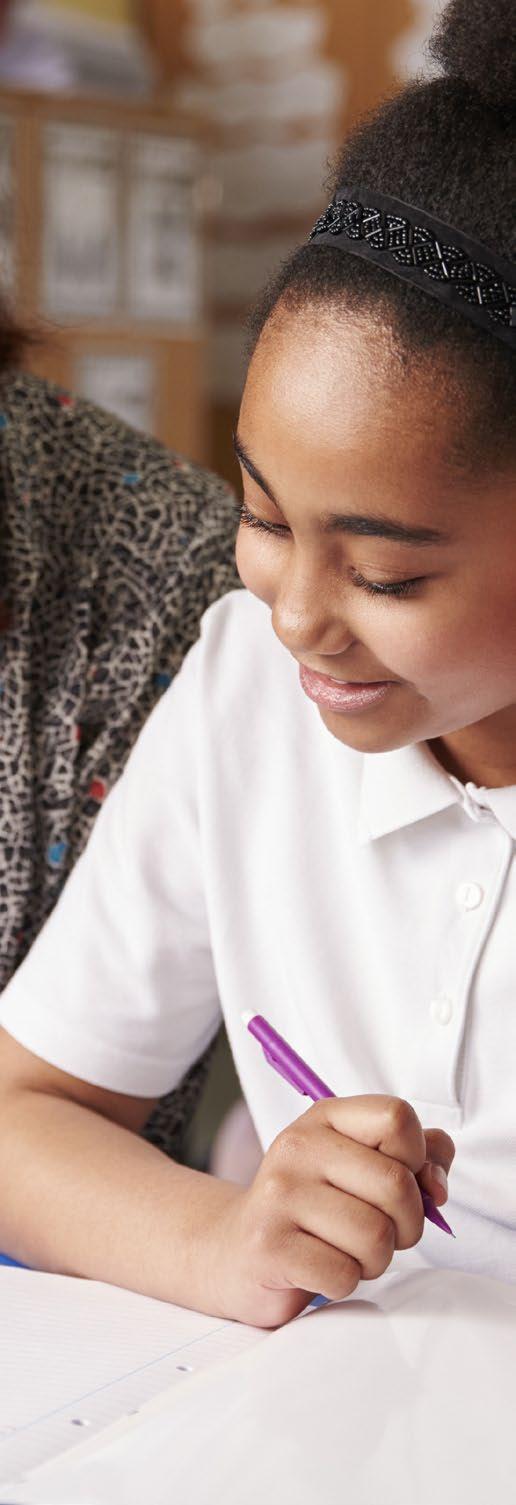
Welsh Government. This should be linked to implementing the NEST/NYTH framework and the Mental Health and Wellbeing Strategy.
• Routinely use the term ‘babies, children and young people’ in policy making
• Have a high-level action added to the Mental Health and Wellbeing Strategy 2024-2034 to develop specialist perinatal services, so that they provide the level and quality of care needed by women, their babies, and families.
• Ensure a monitoring framework for the Child Poverty Strategy reflects the lived experience and voice of babies and young children.
• Ensure current and prospective parents have access to the right support at the right time to enable them to give their babies and young children the best start in life, including childcare, perinatal mental health specialist support, support for Dads and parenting support.
• Commit to increase the understanding of why the first 1000 days are vital to the future success of children and society amongst parents and carers, professionals working with families and the general public.
• Prioritise babies and young children in tough budgetary decisions ahead, including protecting services that support children and families.
• Prioritise funding and policy based on the principle that promoting equity and overcoming the barriers of poverty for children during the early years is more cost effective than later intervention.
Spring 2024 | 11
iv) Family & Parenting Support – The UNCRC explicitly recognises the central role played by parents and families in ensuring that children grow up healthy, happy, and safe. Article 3 clearly states that Government must support families in their vital role in raising children. With the triple threat of the ongoing impacts of the pandemic, the cost of living and climate crises, families face overwhelming pressures and children’s rights are at serious risk.
We are calling for:
• Protected funding and focus for early intervention services for families. These services are key to preventing escalation into other more intensive services that are already under pressure themselves.
• Recognise and support the well-being of parenting and family support staff to ensure retention and recruitment.
• Continue to allow flexibility in service to deliver a responsive approach that both listens and responds to parents needs and takes a strength-based approach, understanding that one size does not fit all.
The current focus and approach to intervention is typically moving away from prevention, early intervention, and universal support towards meeting higher-level and more complex needs. Both staff and resources are being stretched as support services try to meet growing need and demand. Strategizing is challenging when services are trying to do their best with what limited resources they have, as innovation and creativity often gets lost when in fight or flight mode.
Amongst all the pressures on services, there continues to be huge concern for the well-being of staff. They are taking on a lot more, often over and above their specific remit and expertise, resulting in a huge amount of pressure and responsibility. Many staff are feeling unqualified and inadequate in their roles, leading to a lack of confidence, satisfaction, and low morale which invariably impacts retention rates.
In a recent survey by Parents Connect Wales, parents said they wanted universal, centralised support with all aspects of the parenting journey. One parent summarised this by saying, “I want to get information from one place on every element… of raising children for every member of every ability in society.” This needs to be a priority so parents don’t feel lost.
Finally, many organisations working with parents have limited training, skills or resource to carry out consultations and co-production activity with parents. Incorporating wellbeing activities as part of engagement activities can be an incentive for parents to attend and help address some barriers to participation e.g. coffee and a chat, arts and crafts or short yoga taster sessions.
In brief, these are just some of the issues emerging from our work with children, young people, parents and professionals, but there are of course, many more. We very much look forward to continuing our engagement with the newly appointed First Minister and his new cabinet over the coming months to help him realise his vision for all babies, children and young people to have all of their rights fulfilled across the whole of Wales.

12 | childreninwales.org.uk
‘Pause, Play, Fast-Forward: The Journey of Children in Wales’: The Children’s Rights Book Written by
Young People, For Young People
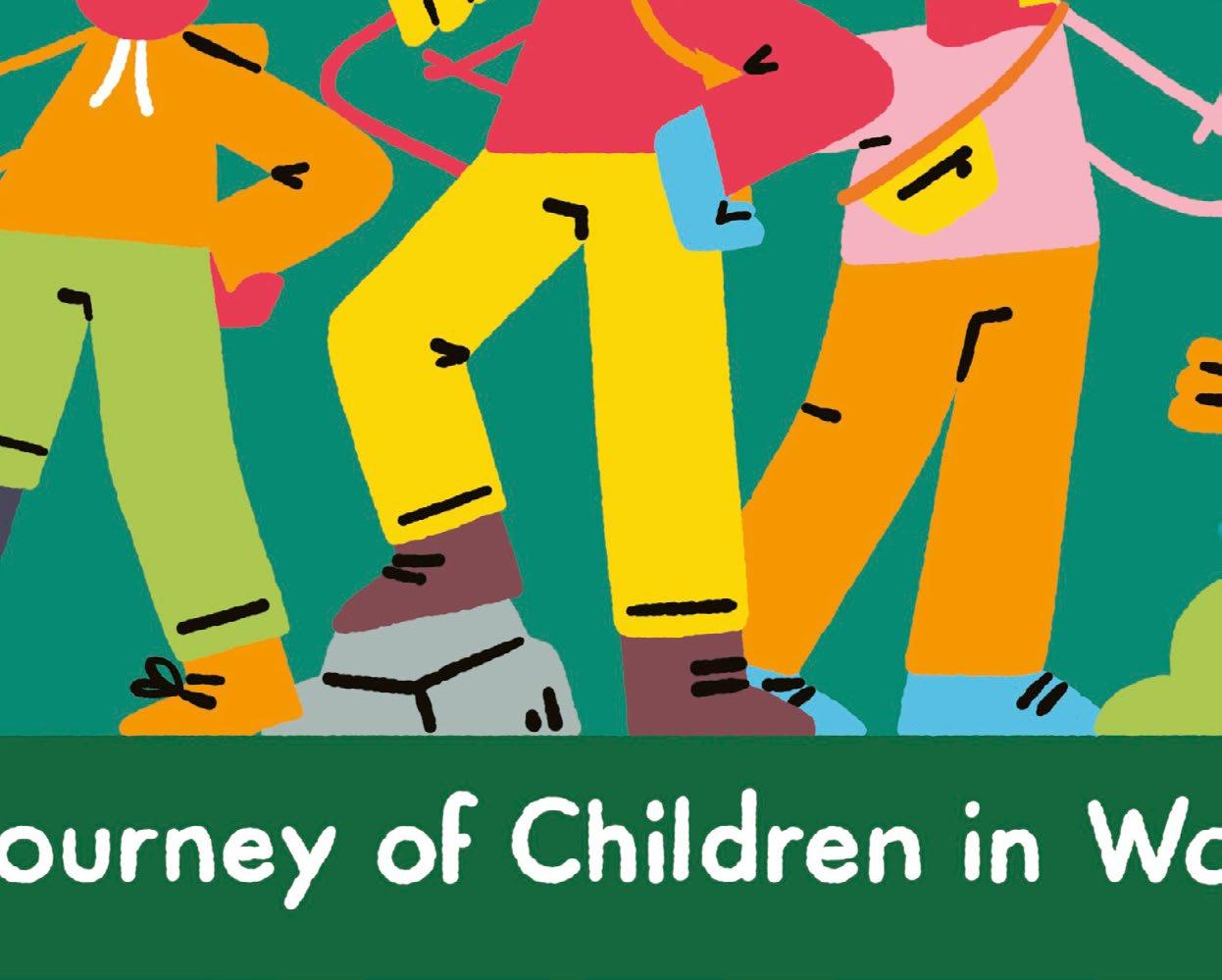
On 7th March 2024, we officially launched our celebratory book, Pause, Play, Fast-Forward: The Journey of Children in Wales. The book offers a unique way to reach children and young people directly, speaking in their language to help raise awareness of The United Nations Convention on the Rights of the Child (UNCRC).
As it was written by our young volunteers, it presents children’s rights in their own words, bringing them to life to ensure they are engaging and easy to understand. The volunteers who worked on the project wanted to create a resource that would reach and empower other young people, educating them on the rights that everyone is guaranteed and deserves.
As part of the project, our young volunteers added their own personal hopes for the future, to help readers better understand what children and young people want to see in relation to children’s rights. Some of these ideas included providing children and young people with more opportunities to share their opinions, more support for minorities, ensuring information on children’s rights is more accessible and to fully incorporate the UNCRC into Welsh law.
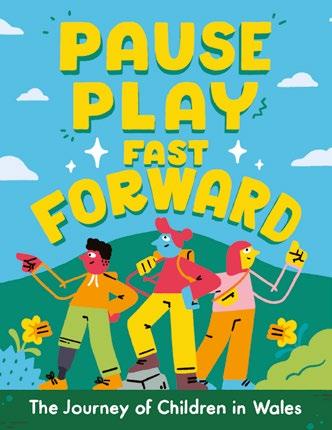
It is these ideas and more that we call for the First Minister to consider and address when taking office. Changes still need to be made in Wales if all children are to be able to access all their rights.
This book highlights that we cannot ignore the voices of those who matter most when putting these changes in place. We must listen to the children and young people they affect to ensure the greatest impact. We should not dismiss their opinions but instead help them grow their ideas until they can materialise them into actionable steps.
To be able to claim your rights, you must first understand them. We hope Pause, Play, FastForward: The Journey of Children in Wales will help educate and empower children and young people to ensure their rights are all fulfilled.
You can download Pause, Play, Fast-Forward: The Journey of Children in Wales using the link below:
English: Pause, Play, Fast-Forward: The Journey of Children in Wales by childreninwales - Issuu
Welsh: Aros, Chwarae, Ymlaen yn Gyflym: Taith Plant yng Ngymru by childreninwales - Issuu
Spring 2024 | 13


The Annual Child & Family Poverty Surveys are now live
Each year, Children in Wales, in partnership with the End Child Poverty Network Cymru (ECPN), conduct the Child & Family Poverty Surveys. We are now in our 8th year.
The findings from these surveys help us to identify and understand more about the current issues and impact poverty has on children, young people and families in Wales. Your experiences and views will help us identify and share this information widely.
Your voices really do make a difference. For example, last year’s survey findings were widely disseminated and used to influence, inform and change practice and policy across Wales. They were also used for reports by Public Health Wales and to inform the new Child Poverty Strategy, launched in January 2024.
Whatever your role or sector, your experiences and views are greatly valued and important to us. Whether you’re a practitioner, educator, policy maker or manager, if your role includes a remit for children, young people and families, then we want to hear from you.
Please take 15 minutes to complete the survey.
We have 3 surveys, 1 for practitioners and professionals, 1 for parents and carers and 1 for children and young people themselves:
Professionals and practitioners: Annual Child and Family Poverty Survey 2024: Professionals & Practitioners (Page 1 of 11) (office.com)
Parents and carers: Annual Child & Family Poverty Survey 2024: PARENT SURVEY (Page 1 of 8) (office.com)
Children and young people: Annual Child and Family Poverty Survey for Children and Young People 2024 (Page 1 of 10) (office.com)
All surveys will close by 5 June 2024.
We are looking for as much engagement as possible and would appreciate your help in distributing the surveys to your colleagues, networks and, where possible, to parents and children and young people as it is crucial that we also hear from them directly.
We will publish and share the findings in October.
Our aim is that the findings will again help to shape and inform policy and practice in Wales.
Thank you for your support.
Spring 2024 | 15
Children’s rights in private family law proceedings and the Pathfinder pilot
Anna Sinclair Head of Private Law Reform, Cafcass Cymru
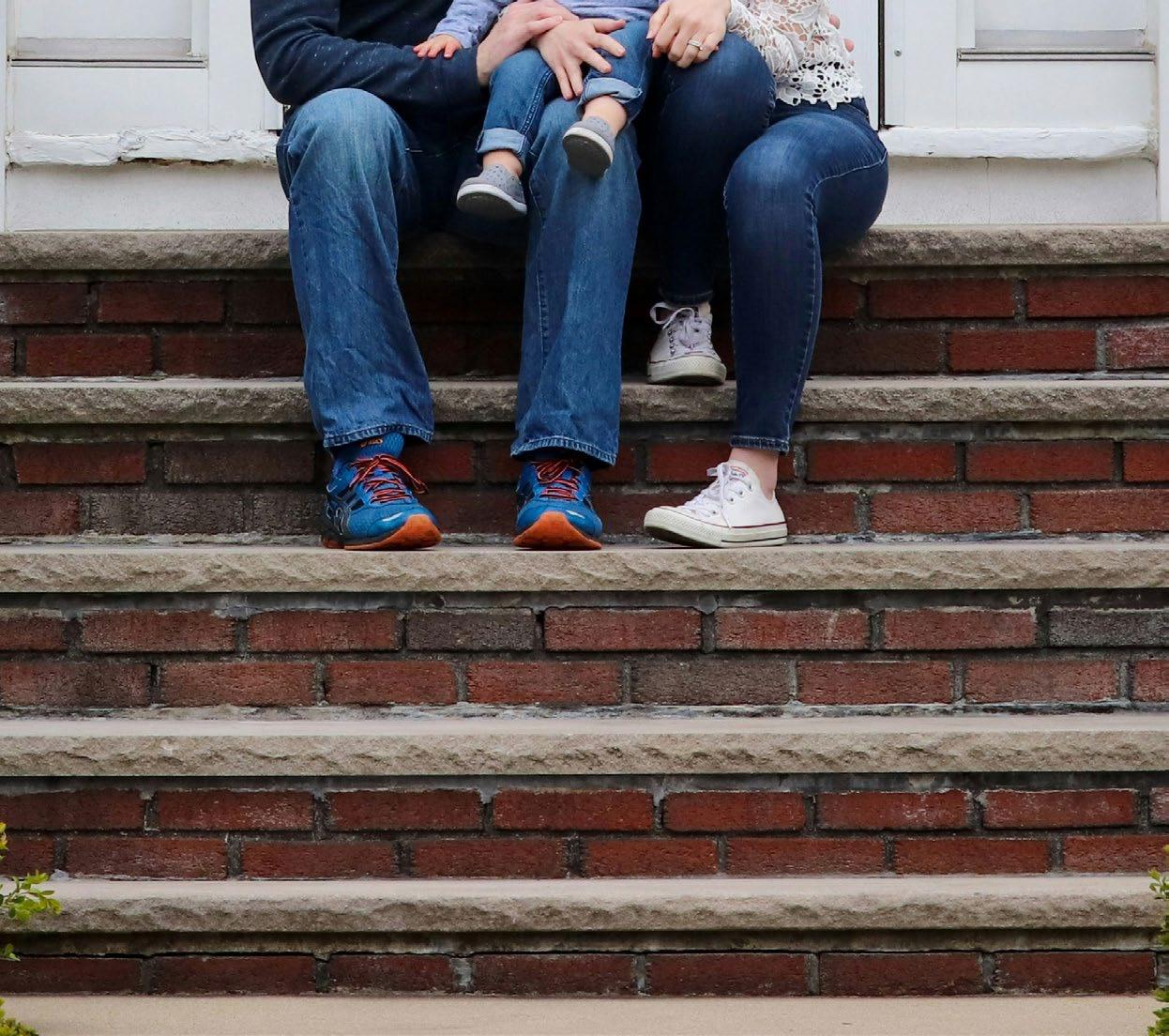
Cafcass Cymru is part of Welsh Government, providing expert child-focused advice to the family courts in Wales to ensure that children are safeguarded, and their voices heard, so that decisions can be made in their best interests.
Private family law proceedings arise when separated parents or other family members apply for an order to a court in England or Wales to decide arrangements for their child or children. The decisions made by the family court can include who children live with and spend time with, the names by which they are known, what schools they attend or whether they are brought up in a particular religion. These decisions have significant and long-lasting impacts in shaping the lives of the children involved.
Section 1 of the Children Act 1989 says that when making decisions, the family court should consider the ascertainable wishes and feelings of the child involved (in the light of their age and understanding). Article 12 of the United Nations Conventions on the Rights of the Child gives children the right to have their views heard and taken seriously by adults when decisions are made that affect them.
It may surprise people then, that the legal framework for private family law, the Child Arrangement Programme (Practice Direction 12B), does not allow children to routinely express their views, but rather it encourages parents and families to settle, or the court to decide, arrangements without hearing directly from
16 | childreninwales.org.uk
the child. Cafcass Cymru practitioners become involved only when directed by the court, and in many cases undertake safeguarding checks only, which do not involve speaking to the children concerned.
There is a growing body of evidence that better, safer decisions are made when children are involved in court processes, and that children and young people are better able to accept decisions when they feel well-informed about what is happening and have the chance to participate (see for example, Roe, A. (2021). Children’s experience of private law proceedings: Six key messages from research. Nuffield Family Justice Observatory). However, recent research indicates that only around half of the children and young people subject to private family law proceedings are given the opportunity to participate in proceedings, and usually only in cases where welfare concerns need to be investigated (Hargreaves, C. et al. (2024) Uncovering private family law: how often do we hear the voice of the child? Nuffield Family Justice Observatory). Further, children are not seen or heard until some months after court proceedings have begun, leaving them in the dark about what is going on in their family.
The Pathfinder pilot was launched in a small number of courts in North Wales and Dorset by the Ministry of Justice (MoJ) in early 2022, in partnership with stakeholders including Cafcass Cymru. It was conceived in response to the 2020 report Assessing Risk of Harm to Children and Parents in private law children cases (Hunter, R. et al 2020). This report found shortcomings in the way allegations of harm and domestic abuse are identified and responded to, a salient finding being that the voices of adult and child victimsurvivors of domestic abuse often go unheard. A key aim of the pilot is improving children’s experience of and participation in the private law court process.
The Pathfinder has allowed Cafcass Cymru to reshape our practice, to approach our work with families in more collaborative and creative ways and to engage with all children and young people at the outset of proceedings, not only children for whom there are welfare concerns. This has been transformational in enabling practitioners to focus
with families on their children’s safety, wishes and feelings within a problem-solving approach. This contrasts with the traditional adversarial approach to private family law in which children are less likely to directly participate and their rights and voices can easily become lost in an adult dispute.
The success of the Pathfinder over its first two years has led to a decision and UK government funding to rollout across South East Wales and Birmingham, with the ambition of rolling the model out still further to other parts of England and Wales. Cafcass Cymru fully supports the rollout of Pathfinder, and the opportunity this presents for all children to be better informed and represented, and to access all their rights in private family law proceedings.
Roe, A. (2021). Children’s experience of private law proceedings: Six key messages from research. Spotlight series. London: Nuffield Family Justice Observatory
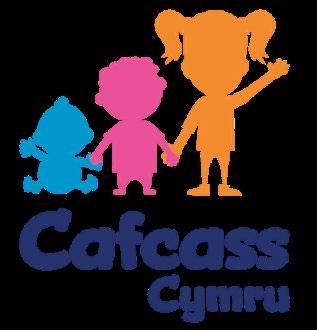
Spring 2024 | 17
A focus on Out of School Childcare and Play
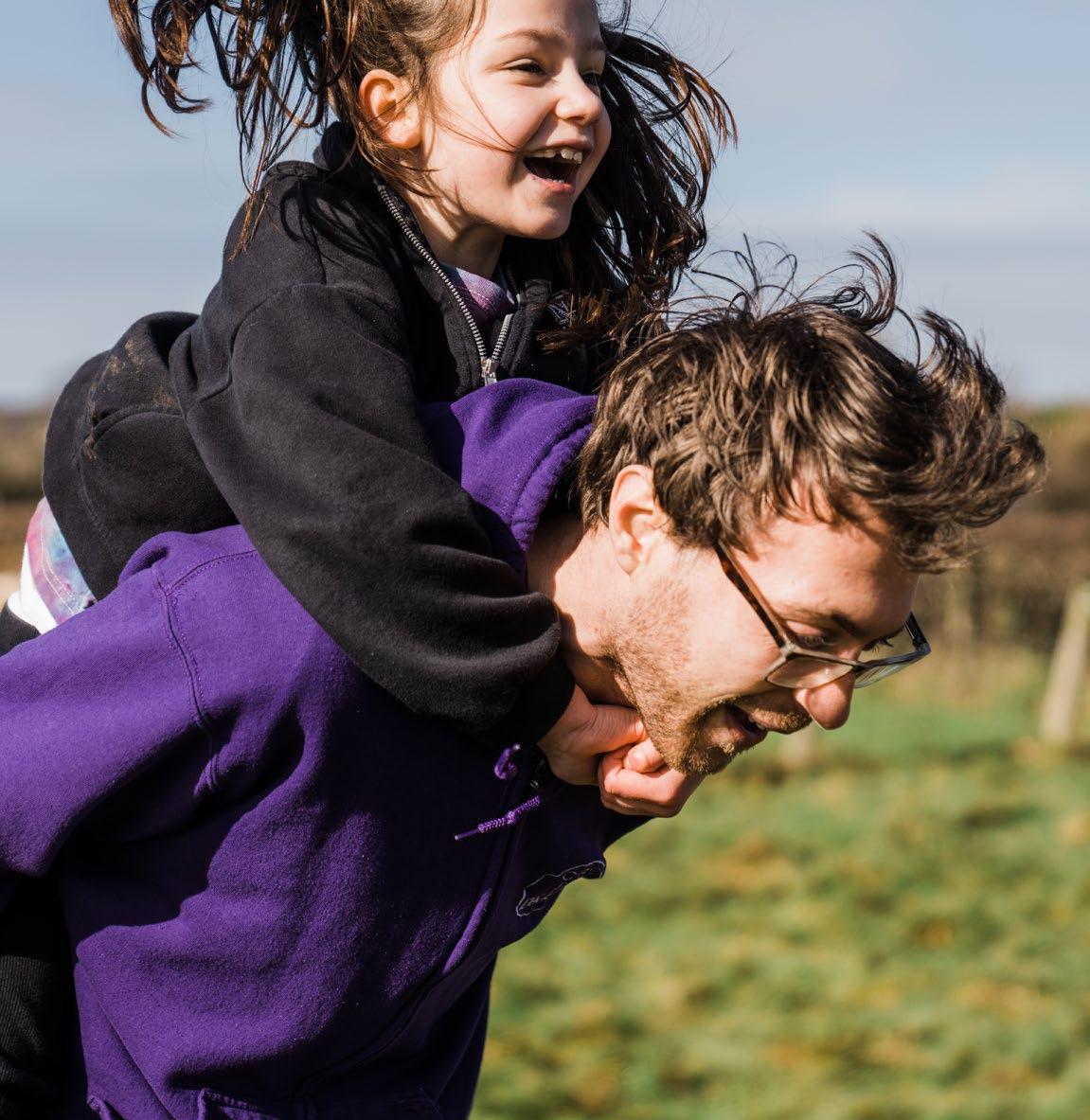
Clybiau Plant Cymru Kids’ Clubs has a vision of a Wales where children play and communities prosper. Our mission is to be the voice of Out of School Childcare Clubs in Wales supporting children’s right to play and that quality childcare is sustainable, affordable and meets the needs of children, their families and communities. Every community is different and a choice of play and childcare provision that reflects language, heritage and culture needs, supports community cohesion.
Care Inspectorate Wales (CIW) registered Out of School Childcare Clubs offer quality, safe, playrich and child-led spaces facilitated by qualified Playworkers, supporting children’s rights (UNCRC,

notably Articles 31, 19, 24, 23, 12, 13and 15; and General Comment 17), Children and Families (Wales) Measure 2010 and the Wellbeing of Future Generations Act 2015,
We currently support over 1,500 Out of School Childcare Clubs, (within 850 individual settings) a key part of Wales’ foundational economy, providing over 46,500 childcare places and an estimated 5,500+ Playworker jobs. These settings and those who work in them, support children’s rights and provide quality, freely chosen play opportunities for children in their communities.
Qualified and experienced Playworkers are the beating heart of the Out of School Childcare sector. They are critical to the quality of play and care and in turn to supporting children’s needs and wellbeing.
Our recent club survey has shown there is a high need for qualifications and training and also a desire for professional development to keep improving practice for example to support using Welsh and diversity, and we are pleased to have accessed funding to meet these demands.
Continuation of funding for funded qualification and training opportunities that meet a variety of eligibility requirements, to support recruitment needs and CIW registration status, alongside promotion and recognition of the value of Playworkers.
The 2020–21 restrictions saw children’s ability to exercise their right to play, along with their health and wellbeing dramatically diminish. With drastically curtailed play opportunities, including outdoor play and compensatory play opportunities within schools and childcare, with typical justifications for time spent outdoors being adult focused and led (International Play Association, 2020).
Increased cost of living and parents continuing to work from home continues to impact on children’s play opportunities within childcare. A recent report by the Bevan Foundation stated 1 in 5 families are struggling to afford the essentials. To mitigate this, funding received through the Moondance Foundation enabled us to support 141 children, regardless of need or ability, to attend Out of School Childcare play-rich sessions, in a non-stigmatised way that they ordinarily would not have had access to. 100% of the settings who offered play-rich sessions through this funding thought they helped support social engagement and mental wellbeing.
Children have the right to express their views freely in all matters that affect them; children who attended the sessions 100% stated enjoyed attending. When asked “What is your favourite thing about the club?” responses included:
“I like making new friends and meeting new people. I like to draw and write stories. I love having chats with girls who work at club and showing them my stories. I look forward to the days I come to club.”
Respondents to our club survey also reported 1,249 children with a variety of additional needs in their settings. Support/wellbeing needs included; difficulty managing emotions, speech and language challenges, low self-confidence/ esteem, anxiety or low mood, mutism, aggression, behaviour, ADHD, Autism, non-verbal, severe cognitive conditions.
“There is not enough money available to support the wellbeing needs of the children, the impact of Covid has been massive on the children and is still obvious. More money is needed to provide free place spaces for children who are struggling with their physical and wellbeing abilities.”
Survey respondent
There needs to be greater awareness of the benefits of play for children, to educate and inform communities across Wales about children’s right to play and the value of play, its positive impact on wellbeing (especially given the responses on children’s support needs), and CIW registered Out of School Childcare for children.
Freely-Chosen play, recreation and creativity has a multitude of benefits for children, including their psychological, social and cognitive development and positive impact on mental health and wellbeing. Out of School Childcare settings are able to create and actively encourage the time and space for children to engage in their own play preferences; helping them to feel valued, and listened to whilst also providing them with a multitude of benefits from physical and mental health to the support of overall development.

Spring 2024 | 19
Six things young people would do if they were in charge
Children’s Commissioner for Wales
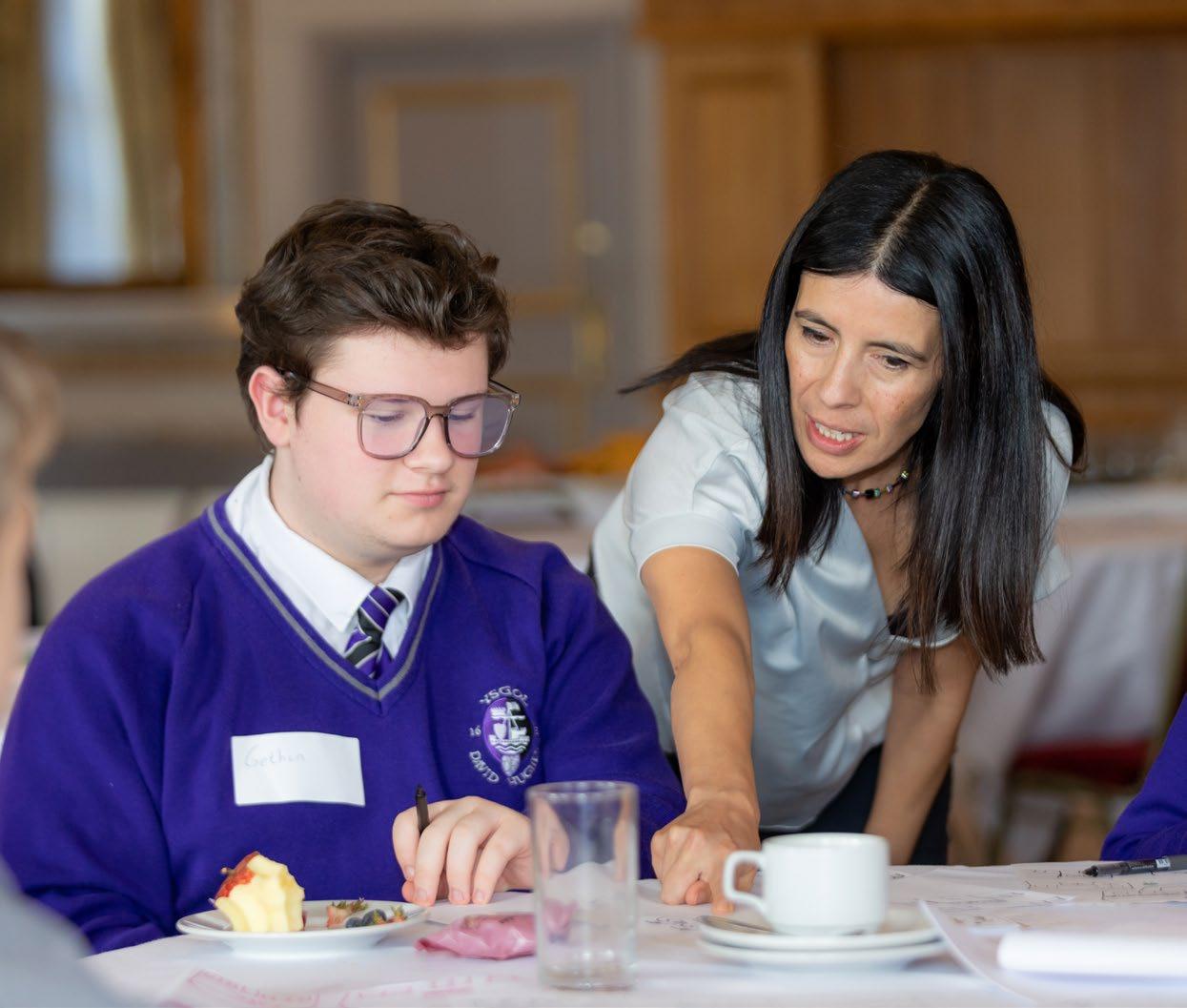
What would Welsh young people do if they were the new First Minister?
During February over 600 children across Wales took part in my office’s discussion pack for schools, Monthly Matters, and told us what they thought. Here are six things that they would do if they were at the helm.
1) Education-related issues and ideas were high up the list. Among calls for more diverse learning experiences and a wider range of subjects, some answers reflected broader issues like the cost of school meals, equal access to clubs, and the cost of revision resources. Young people also talked about support for themselves and their peers - ‘have more support staff in schools’, ‘help children more with reading and speech’, and
‘more helpers in schools to help with our writing’. Against a backdrop of ongoing post-pandemic challenges, these comments emphasised the need for sustained and significant investment in education recovery.
2) Money was a huge concern for those who took part. As previous research has shown, including a national survey conducted by my office in 2022, the prices of food, fuel, and bills was at the forefront of many minds, as was cheaper houses and higher wages. I had the feeling reading the responses that many young people cared deeply about the hardship that they are inevitably seeing in their communities, and looked for solutions - ‘I will give money to the poor and give them food’, ‘make sure people get a coupon just in case they are in a bad situation with money and can’t afford things’, ‘Free food and clothes to people in need’.
20 | childreninwales.org.uk
3) Transport was another hot topic. ‘Buses that run on time’, ‘affordable buses and trains’, and ‘free public transport’ were among answers that reflected a need for a more reliable and affordable system. Transport is something I hear a lot about from children and young people across Wales, and I’ll continue to call on the Welsh Government to give all young people the free public transport that will help them to access their rights - including their right to education, health, and to spend time with their peers.
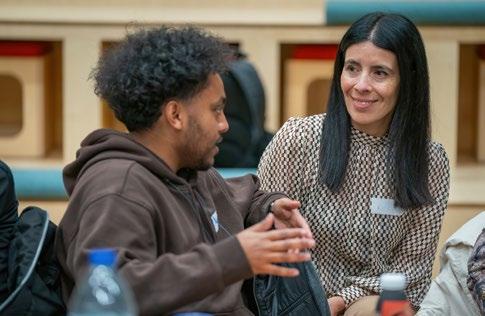
4) ‘More hospitals’, ‘better medical care’, and ‘more doctors surgeries’ were some of the many comments related to healthcare treatment. Young people’s views echoed a recent report by the Royal College of Paediatrics in Wales, which painted a stark picture of the current state of child health services and of unacceptably long waiting times for children. There must be a dedicated plan for improving children and young people’s health, reducing child health inequalities and addressing workforce issues.
5) Local environment was a significant talking point, and in particular the cleanliness of young people’s streets and town centres. An array of comments calling for ‘more rubbish bins’ suggested that litter is a big issue for children and young people.
6) More to do for free. Young people wanted access to a broad range of activities, sports, and opportunities to learn outside of school that didn’t cost any money - ‘ Not enough safe places to go to all year round to complete our hobbies and they are becoming more expensive and we can’t afford to do it.’
These findings reflect many of the areas of concern from my 2022/23 nationwide survey ‘Ambitions for
Wales’, which heard from over 10,000 children and young people, and helped shape my threeyear strategy ‘Making Life Better for Children in Wales’. The strategic priorities and key focus areas for my term of office include education, mental health, equalities and poverty. As a progressive nation which places great emphasis on children’s human rights, I have urged the new First Minister to reflect on these messages from children when setting his own Government’s priorities.
In a statement accompanying the appointment of the new cabinet, the First Minister has expressed his commitment to giving children the best start in life, which I fully welcome, and indeed the introduction of Early Years into the Ministerial portfolio for mental health. These are critical times for children and young people, and I’ll look forward to meeting the new First Minister to discuss these priority areas in more detail, along with all of the key points that children have shared with me.
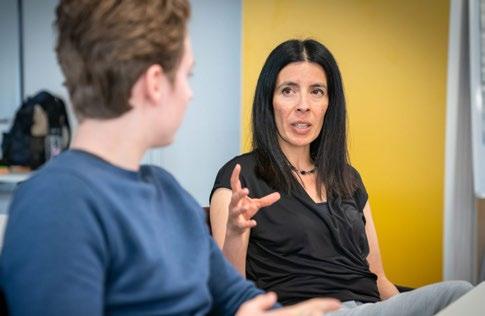

Spring 2024 | 21
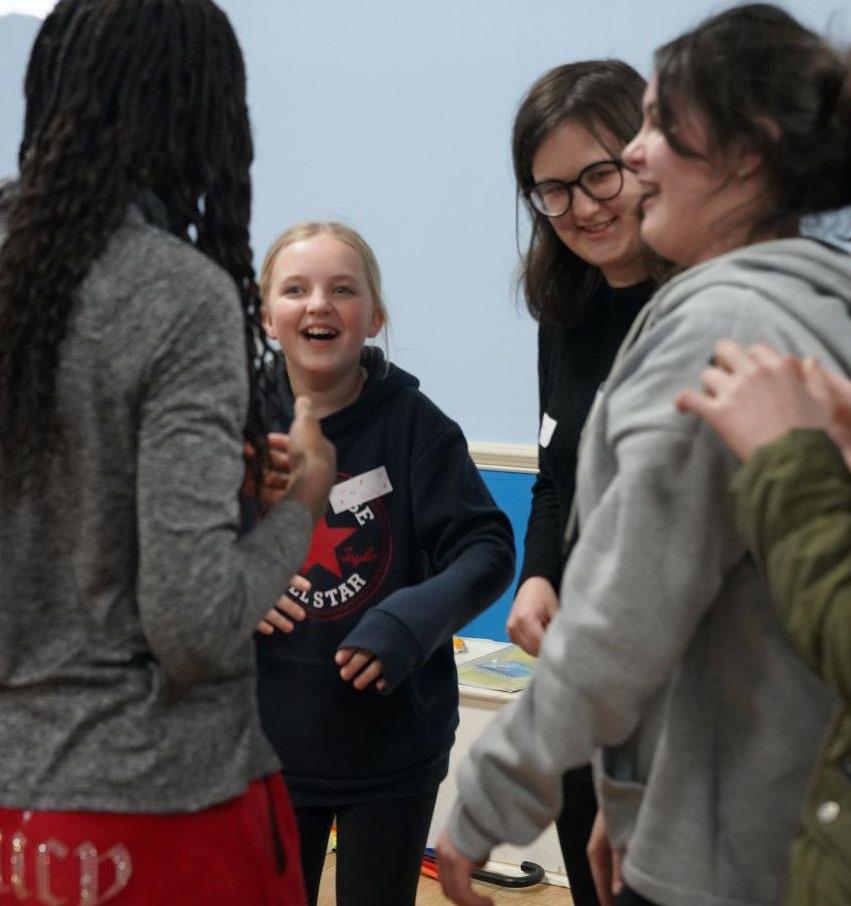


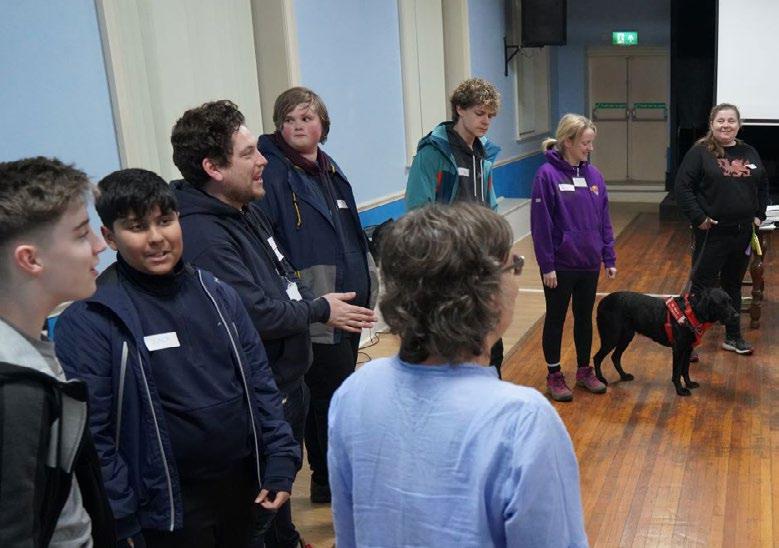
Young Wales is recruiting young volunteers!
Young Wales is a Children in Wales initiative funded by Welsh Government. We are about listening to young people and empowering their voices. Our work is built on the ideas of sharing, informing and changing policy and practice.
By working with Welsh Government and organisations across Wales, Young Wales provides opportunities for young people to be involved in social action, and influence decision-making on a local and national level.
The United Nations Convention of the Children’s Rights of the Child (UNCRC) is at the heart of the work carried out by Young Wales. We want young people to know their rights so our goal at Young Wales is to reflect UNCRC Article 12 – the right for young people to have opinions, and for these opinions to be heard, and taken seriously.
Young people’s voices are powerful, and Young Wales provides a platform for young people’s views to be heard.
Through our different consultations, boards and groups, young people can develop their skillsets and share their thoughts on topics that matter to them. No previous experience is needed. We’re looking for enthusiastic young people who want to get involved and use their voice to make a difference.
The Young Wales team works hard to create amazing opportunities for young people to get involved in, all year round. Here’s some examples of what our volunteers can get involved with:
• Get involved in our Boards and Groups which cover a range of topics from climate Change and Mental Health to Online Safety, Education and Training, and LGBTQ+ issues. If there’s a cause that young people are passionate about, we probably have a group for it!
• Attend a Young Wales residential, which happen 3 times a year across different venues in Wales – all accommodation, transport and food are provided free of charge.
• Learn more about the UNCRC and help us spread the word about children’s rights across Wales.
• Meet with Members of the Senedd and Welsh Government Officials and share their thoughts as part of our Young Wales programme.
• Get their voices heard by taking part in one of our many different consultations which take place throughout the year.
• Join us at events like the Young Wales Annual Festival, the Urdd, and Pride Cymru.
We use Microsoft Forms to sign up our young volunteers and so they can register via the form here. It takes about 20 minutes to complete. We will then get in touch by email to invite the applicant to an online volunteer induction, and upcoming opportunities and events.
If you have any questions or want to find out more please get in touch with us by emailing young.wales@childreninwales.org.uk
Spring 2024 | 23
We Stand

It is estimated that 1 in 10 children are sexually abused by the time they reach the age of 16. Child sexual abuse is a systemic trauma impacting the whole family. Child victims face an increased likelihood of further abuse and life-limiting problems as a result. At the same time, without appropriate support, the whole family will struggle to overcome the collective trauma and provide the stability and support that victims and survivors of child sexual abuse need.
For the last 30 years, We Stand (www.westand.org.uk) has specialised in helping families to process their trauma together and for parents and carers to protect and support their sexually abused children to move forward. We receive calls every day from those who have recently found out that their child has been abused. They are often in a state of shock, with feelings of isolation, despair, and no ability to comprehend how they will navigate the future.
Our aim is to mitigate the long-term impacts of childhood abuse and our delivery model empowers the whole non-abusing family to move forward together.
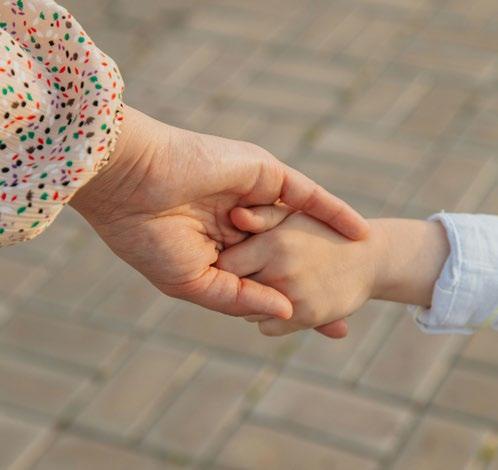
While we have made a significant and positive difference to tens of thousands of lives, including via our UK-wide helpline, our face-to-face work has been confined to clients in South London. The pandemic fast-tracked our strategy of delivering our other services UK-wide for the first time. We continued to be concerned by the lack of in-person, in-depth provision for the whole family across the UK.
The UN Committee on the Rights of the Child, who in the 2023 concluding observations following examination of the UK’s children’s rights record, stated that they were “... seriously concerned about the inadequate resources allocated to related services for child victims.” The Committee makes a number of recommendations to the State party on how it can ensure children are better supported, including: “...access to community-based trauma care and child-sensitive support services as well as to ensure that all children who are victims or witnesses of violence have prompt access to child-sensitive, multisectoral and comprehensive interventions, services and support, including forensic interviews and psychological therapy,
24 | childreninwales.org.uk
Becky Booth
with the aim of preventing the secondary victimisation of those children”.
We echo the need for these changes and firmly believe that the needs of the child will not be fully met without support for the whole family. We see a significant opportunity for the Welsh Government to place a greater focus on support for the whole family in their new national action plan for preventing and responding to Child Sexual Abuse.
Launching this spring, our offer in South East Wales will focus on providing face-to-face support to the protective/non-abusing family members, alongside our online offer to families across Wales. Services will include therapy for parents and carers, legal advice and support and workshops on parenting through trauma.
Our new services for parents and carers will complement the existing children and young people’s support being provided across Wales by specialist providers, ensuring that the whole family is supported through their trauma. We are keen to link up and work collaboratively with other organisations working in this space to advocate for a whole family approach.
Please contact melissa@westand.org.uk to find out more.

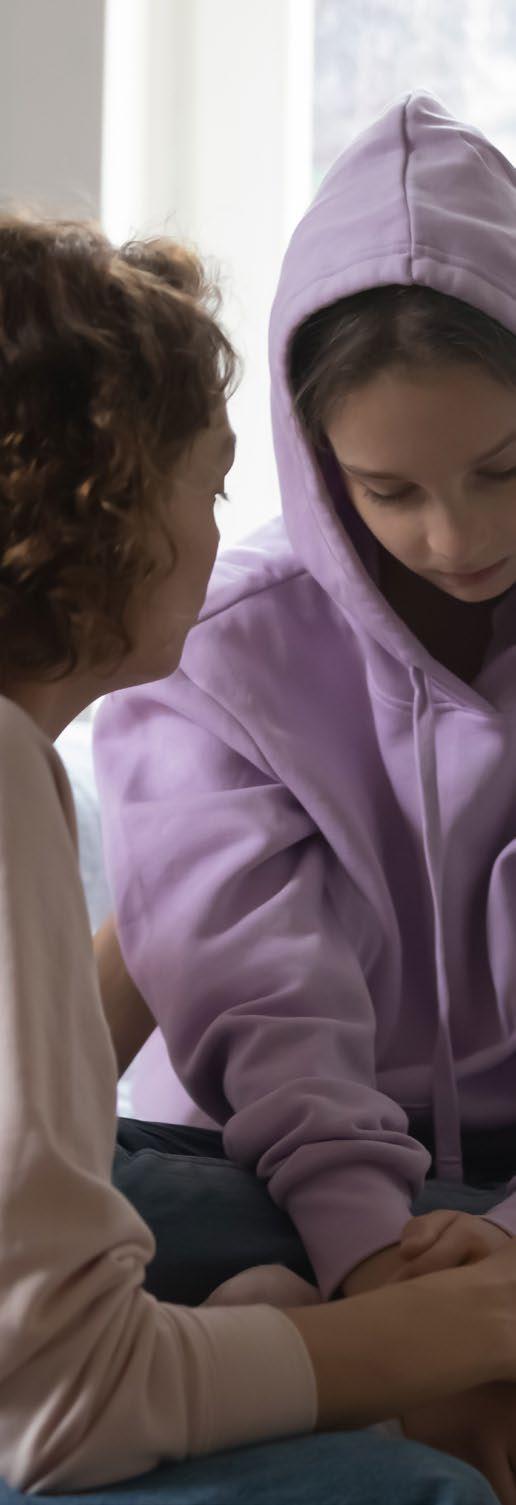
Spring 2024 | 25



Cardiff University Social Science Research Park (SPARK), Cardiff, CF24 4HQ 029 2034 2434 @ChildreninWales info@childreninwales.org.uk childreninwales.org.uk
















































